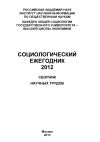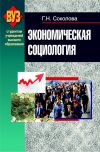Текст книги "Социологический ежегодник 2010"

Автор книги: Коллектив авторов
Жанр: Социология, Наука и Образование
сообщить о неприемлемом содержимом
Текущая страница: 34 (всего у книги 39 страниц)
SB: Movement is always being and not-being in the present point; a question on movement ambiguity and movement unpredictability: does your notion of systems solve this problem?
JU: My view of systems is that they never finalize, never complete, and they are never a matter of equilibrium. Physicists have a term which I like – «metastable»: not stable and not anarchic, contingently stable. Systems are held in a state in which quite minor things – bearing in mind the idea of complexity – can in certain circumstances disrupt what appears to be a highly stabilized system or a set of systems. Also, of course, systems are very interdependent with each other, so again – a small change somewhere in one system can then have a knock-on effect, reverberations which then impact on other systems.
* * *
JU: I see the capacity to network as a form of capital like economic capital or cultural capital. Network capital, I want to argue, is increasingly important in the contemporary world and it is probably more unequally distributed as other forms of capital.
Movement of some creates new industries, new things like airports, service stations, hotels, leisure centers because for others they are employees. But for me, an utterly central part of the mobilities’ program of research is to think about the new ways in which movement for some is non-movement for others.
A very interesting example is the big cities that now are come to develop around airports. Airports are epitome of movement aspects – people are moving in and out all the time. But of course there are large numbers of people who are relatively immobilized living and working in cities which often employ 50 or 100 thousand people. Sometimes they are mobile, but mobile to work for others – like my example with Dubai where the 80% of workforce are made up from migrant workers from Pakistan and India – incredible flows coming in to service. And when the workers arrive in Dubai their passports are taken away from them and they only get them back when leaving.
Yes, I completely agree and my method of looking at that is the concept of network capital. Also, I think there is an ideology of movement, the notion that to be a successful professional person you should have travelled about and you should have accumulated network capital from movement – I guess that is something that all of us are complicit in to some degree.
* * *
The significance of ideas of movement and circulation in the early scientific thinking, especially followed Harvey’s discovery of how blood circulates within the human body and Galileo’s notion that a natural state is to be in motion and not at rest, was the very idea that motion is «natural» and is something that ought to be identified, registered, promoted and so on. Some of the ideas that circulation is good you can see in a lot of early discussions on what should be done about cities in the early 20th century with the development of the motorcar with the car being something that would promote good healthy circulation in the body of society or the body of the city. So I think in Western thought the virtues of movement are very significant. There is in the modern world an accumulation of movement that is analogous to the accumulation of capital – repetitive movement or circulation made possible by diverse, interdependent mobility-systems.
Some pre-industrial mobility-systems included walking, horse-riding, sedan chairs, coach travel, inland waterways, sea shipping and so on. But many of the mobility-systems which are now significant date from England and France in the 1840s and 1850s. Their interdependent development defines the contours of the modern mobilized world that brings about an awesome «mastery» of the physical world (generally known as the «industrial revolution»). Nature gets dramatically and systematically «mobilized» in mid nineteenth-century Europe. Systems dating from that exceptional moment include a national post system in 1840 (Rowland Hill’s Penny Post in Britain based upon the simple invention of the prepaid stamp), the first commercial electrical telegram in 1839 (constructed by Sir Charles Wheatstone and Sir William Fothergill Cooke for use on the Great Western Railway), the invention of photography and its use within guide books and advertising more generally (Daguerre in France in 1839, Fox Talbot in England in 1840), the first Baedeker guide (about the Rhine), the first railway age and the first ever national railway timetable in 1839 (Bradshaws), the first city built for the tourist gaze (Paris), the first inclusive or «package» tour in 1841 (organized by Thomas Cook between Leicester and Loughborough in Britain), the first scheduled ocean steamship service (Cunard), the first railway hotel (York), the early department stores (first in Paris in 1843), the first system for the separate circulation of water and sewage (Chadwick in Britain) and so on. In 1854 Thomas Cook declared as the slogan for such a period: «To remain stationary in these times of change, when all the world is on the move, would be a crime. Hurrah for the Trip – the cheap, cheap Trip».
But of course it turned out to be very limited changes – the twentieth century then saw a huge array of other «mobility-systems» develop, including the car-system, national telephone system, air power, high speed trains, modern urban systems, budget air travel, mobile phones, networked computers. As we move into the twenty first century these «mobility systems» are developing further novel characteristics.
First, systems are getting even more complicated, made up of many elements and based upon an array of specialized and arcane forms of expertise. Mobilities have always involved expert systems but these are now highly specific, many are based upon entire university degree programmes and there is the development of highly specialized companies. Second, such systems are much more interdependent with each other so that individual journeys or pieces of communication depend upon multiple systems, all needing to function and interface effectively with each other. Third, since the 1970s onwards, systems are much more dependent upon computers and software. There has been a largescale generation of specific software systems that need to speak to each other in order that particular mobilities take place. Fourth, these systems have become especially vulnerable to what Charles Perrow «normal accidents», accidents that are almost certain to occur from time to time, given the tightly locked-in and mobile nature of many such interdependent systems: if one bit goes wrong, the whole system goes wrong.
What has been generated is what I like to call «mobility complex» which is a new system of economy, society and resources. That have spread around the world and this mobility complex is remaking consumption, pleasure, work, friendship and family life.
One of the most interesting writers about that is Zygmunt Bauman. He says, as a consequence of this complex «mobility climbs to the rank of the uppermost among the coveted values – and the freedom to move, perpetually a scarce and unequally distributed commodity, fast becomes the main stratifying factor of our late-modern or postmodern times». Mobility inequalities become central to understanding contemporary societies. And of course as people move about gaining new addresses in their address books so that network extends, they then become more networked and networking thus is a form of inequality.
As I said earlier, movement and especially the capacity to move through what I call network capital have become particularly significant. Network capital may consist of the number of features: the ability to access forms of movement (the capacity to repair a journey when something goes wrong with it and then other alternative could replace it), to know about these forms of movement through, for example, timetables, access to information and communication systems.
My argument is that the contemporary social science ought to take very much into the hand these inequalities of network capital and network capital is obviously connected to income and wealth, it is, as Bauman says, a main stratifying factor in contemporary times and we should study network capital alongside economic capital and cultural capital.
Q: Is network capital measurable or is it just a metaphor?
JU: Yes, it is certainly not as easily measurable as you could measure the economic capital or the distribution of income or wealth but of course normally we would think that, for example, relationships of social class involves more than just a distribution of income and wealth but these are sets of relations, so network capital would also be a set of relations and it would involve therefore indicators – say, the number of different forms of transport that any individual has access to, forms of communications, the reliability and consistency of those, the degree to which in a given society those were consistent and integrated with each other, the degree to which it was possible for particular groups to repair situations where there might be a some kind of a breakdown. So I think what we could do is to study it at a specific level – particular social groups, to establish how and why these groups have high or low network capital. It would be difficult to produce a national distribution but then that would be true for other forms of basis of stratification as well.
I am writing a book with Anthony Elliott called «Mobile lives» and he is been doing a research on what we call «the globals» – those who are hugely rich and with high levels of network capital and we have to some degree being exploring through his research how to study the network capital of what we might loosely call «the super rich» whose lives are formed through movement. There is no problem in moving from one country to another because «the super rich» would have homes in those countries as opposed to merely having to book a hotel room or sleeping on somebody’s couch. And of course also there are some groups who compensate for relatively low network capital such as youngish people who in a way often travel in ways more than they «ought to», given their income – for example couchsurfing networks is an interesting way of getting around or compensating for limitations on network capital. So there lots of ways in which one can begin to study at least for specific groups the huge inequalities. I’m not sure whether these inequalities are more pronounced than distribution of income and wealth but they are certainly very pronounced and also they are obviously very significant by ethnicity, by gender, in complicated ways by age and so on.
* * *
AB: I would like to know your opinion of what might be called «dematerialization of human experience» or «decrease of vitality». For example, instead of making a real journey I can sit in front of a TV or a computer and watch pictures, videos or take a virtual tour on the Internet. What do you think about the perspectives of this phenomenon?
JU: The contemporary world is extremely difficult to research because the conditions of physical travel and communications are so rapidly changing, and figuring out how that is going to develop in the future is a huge question.
I think there is still a very strong notion of material connections, at least from time to time. This event wouldn’t have been possible if I hadn’t met couple of colleagues and organized this previously somehow. There has been an establishment and a certain sort of trust between us because we physically met – it is a material basis. And then, on this basis, we have other kinds of communications, such as we are having now, or through mobile telephony, e-mails or Skype. So at the moment is seems to me that the virtual is adding into material.
What is really interesting is whether people would substitute for the physical or body relationships or encounters with purely virtual. I don’t think there is much evidence that this happens so far, but we don’t know in what ways technologies will change – this might be a much more dematerialized possibility. What would the Internet be like in a, say, 20-years time? How would we be doing this encounter 20 years from now? I guess it would be pretty different and maybe each of you and I would be 3D-figures, many of the features of the faces would be experienced by the virtual communication systems and we might well say: «Ok, that’s the more real experience we said of the physical travel».
NP: I believe that in the prospective of a few years from now or few decades perhaps, we will have less need for physical travel and there is a lot of evidence how physical travel in the world is replaced with virtual (not to mention what we are having now). Take virtual tourism for example: now we are installing web-cams in different geographical spots of the world in order to give people the illusion of being present somewhere where they can go physically! But they don’t have time or desire enough – just to see the picture of what is happening there online.
In my view, non-material, dematerialized factors will take the leading and prevailing role – in one way or another, and the segment of dematerialized world would increase substantially. Virtual mobilities will replace the lack of physical motion; it will even bring some changes in human bodies – we will look differently from what we are now.
SB: What will happen if the virtual communication replaces physical movement on which all the tourist industry stands upon? Or why people are willing to be there physically, by their own bodies?
NP: This is debatable – some people do, some people don’t. I don’t think that everybody is just dying to travel – this is sometimes forced by the circumstances, by mass media, by public opinion, but sometimes to stay where you are is a bit more rewarding than to go somewhere.
JU: The physical movement that we have known, al least in a part of the world, over the last century or so, have all been premised upon cheap oil. The politics of oil and the fact that at the moment there is no real substitute for oil for moving water, people and objects around the world – this is all a big issue. And, of course carbon emissions from that oil and the effects on climate change are incredibly significant and that would add to the complexities of your point that life would be increasingly «living a life on the screen» as opposed to «living a life on the road».
Производство-потребление: Новый социальный феномен / Телемост с Джорджем Ритцером
Prosumption: A new social creature / Telebridge with George Ritzer; Higher school of economics (Moscow, Russia) – University of Maryland (College Park, USA), 11 December 2009
Джордж Ритцер (род. 1940)
Американский социолог, один из лидеров современной социологии, заслуженный профессор Мэрилендского университета (США). Более всего Дж. Ритцер известен своей концепцией «макдональдизации», в которой расширил классическую теорию рационализации Макса Вебера. Дж. Ритцер утверждает, что рестораны «МакДоналдс» оказались яркими проявлениями возрастающей инструментальной рационализации и иррациональных последствий человеческого существования. Также Дж. Ритцер является одним из ведущих теоретиков теории глобализации и общества потребления. Среди последних работ Дж. Ритцера: «Макдональдизация общества» (пятое издание, 2008), «Глобализация Ничего» (2004).
Participants
GR – George Ritzer, University of Maryland
NP – Nikita Pokrovsky, HSE
NJ – Nathan Jurgenson, University of Maryland
PJ – P.J. Rey, University of Maryland
AB – Alex Boklin, HSE
TR – Tatiana Razumovskaya, HSE
Q – Questions from HSE MA students
GR: I have long been working on the topic of prosumption although I did not have the term «presumption». The term first appears in Alvin Toffler’s work in 1980 and was very popular, but I don’t think that his use of the concept of prosumption had very strong effect on me nor on very many people. There are many other things about Toffler’s work that caught people’s attention – not that one in particular.
When I was writing the book on McDonaldization and writing about the issues of efficiency I started talking about the idea that one of the ways in which McDonalds made operations efficient was to put customers to work. So there has long been a section in the book headed «Putting customers to work» and obviously that’s the forerunner in many ways at least to my thinking on prosumption. Some years later I started to think about this phenomenon in terms of a continuum: on the one hand we have a pure consumer – someone who does nothing but consume; and on the other hand we have a pure producer, if such thing is possible, where there is no consumption going on.
At one point I played with terminology of using the term «prosumer» in a more limited sense to be the kind of person who is more producer than consumer: a prosumer would be toward the production end of the continuum. Then I played on the other end of the continuum with the idea of what I all «conducer», which is obviously just reversing the priorities. The conducer is somebody who is more of a consumer than a producer. I found it so unpleasant that I actually never did anything more with that idea. But still – at least in general – we need to think in terms of a continuum – from a pure producer to a pure consumer and then think of mixed types in the middle.
NP: On my part, if you allow me, I would suggest one more entry to the list of those new functions of consumers who are becoming producers. This is the entry of those consumers who buy electronic equipment and, in order to start all the functions, are forced to study very thick manuals which is quite a labor to do in fact and takes a lot of time and practicing. So, you really need to have a special training before you can become a well-operating person. There is no way to do anything without producing this knowledge for yourself.
NJ: Can you give an example? A lot of new technologies are increasingly easier to use user-friendly that don’t require the sort of production of knowledge on the part of the consumer?
NP: I think this format of «easy-using» or «friendly-using» equipment is a fake thing, because if you go deeper in studying those functions, physically speaking, you get lost. You need to have a very special knowledge of how to use them and when a technician comes to help you to install the equipment he operates very easily with those things but as soon as s(he) leaves, you’re absolutely lost and you have to learn a lot. It refers to some software, hardware, notebooks, HD television sets, HD satellite receivers, washing machines, dish washers, everything. It is my general attitude.
AB: I would refer to Linux which you largely discuss in your mutual paper. Even most friendly-made editions of Linux operating systems are hard to use because if we compare them with Windows which is very friendly and which does almost al the things for you, in Linux you really have to learn in order to operate it well and not to face any critical errors.
* * *
GR: On the one hand there is interesting prosumer and on the other hand there is the interesting Web 2.0. Of course they come together since the most important contemporary examples of the prosumer exist on Web 2.0.
One of the arguments that I make in one of my papers is first of all that in thinking about prosumption and production and consumption we need to correct two historical errors. I think it comes from the tendency in economics to differentiate between supply and demand, basically supply being production and demand being consumption. Then in other fields, and in sociology – a separation of production and consumption. I think there is a problem here historically of making this conceptual distinctions but also seeing them as in some way opposed to one another while privileging supply in economics and production in sociology. So two related errors are that we are separating these ideas and then privileging supply and production over demand and consumption.
Over the last century and a half or more, there is a tendency among social theorists to emphasize either production or consumption. Most of the early theorists – and Marx being the most important example – emphasized issues of production. Consumption was of secondary importance to Marx and consumption he dealt with really had to do with something taking place in the process of production, not the kind of consumption that we generally think of today.
Conversely, beginning in the post-war era, in the United States especially, the focus began to shift from production to consumption as production in the United States started to decline – early with the decline of the steel industry and then more recently with the decline of the automobile industry. I think you know I’m interested in what I call the cathedrals of consumption – Disney World, shopping malls, Las Vegas and things like that. All of those were products that began in the United States in the 1950s and boomed in the 1950s, 1960s and 1970s and reflected, in the United States, the shift from society dominated by production to one in which consumption was more and more important, and the statistics that we use a lot in the US these days, is to say that 70% of the American economy relates to consumption. There is some controversy about how accurate that figure is but in any case it’s an indication of the degree to which consumption has become predominant in the United States.
Of course the scholarship began to shift as well. We have the beginning of the field of the sociology of consumption as a result of this although interestingly the sociology of consumption has never been strong in the United States. It’s great paradox – the fact that here we have the world leader in consumption and the world leader of exportation of consumer goods and modes of consumption but at the same time we have a rather undeveloped sociology of consumption. Probably the richest work in the sociology of consumption has been done for years in Great Britain. The key document was done by Jean Baudrillard in his «Consumer society» which was published in 1970. Baudrillard announced there the arrival of consumer society and it was very important that someone within Marxist tradition made this point. Of course later on he published books on his break with Marxism and then his more radical ideas; anyway, I think that volume was important in the history of thinking about this. But the essential point is if you think of Marx as being overwhelmingly a theorist of production and Baudrillard at least in 1970 as being overwhelmingly a theorist of consumption what you have here is that dysfunctional separation between production and consumption, which has adversely affected our ability to think about many things by feeling that we necessarily had to categorize them as either production and consumption.
From my point of view, I would say: we have always been prosumers. To me, the primordial state is the prosumption state. If we go back to the earliest history, back to Middle Ages where people are raising their food, hunting for their food or however get what they need to eat – they are more or less or simultaneously are producers and consumers of what they need in order to live. I think that historically that is the primary state. What happened in the Industrial Revolution is that we came – as Marx did – to separation of home and a workplace (a factory). We came to think of those people who went to the factory as producers without taking into consideration the fact that – as Marx recognized but did not emphasized enough – even in their active producing within the factory they were prosuming because they had to at the minimum consume – they had to consume Marx’s means of production in order to produce. So what we thought of as a production worker was a prosumer.
As we move into the era of the last half-century or so in the United States, we think in terms of a consumer society. The fact is of course that increasingly – as you, Nikita, pointed out with your examples – consumers are producers. And it’s back to my idea «putting consumers to work» but it seems to me that we see an explosion of prosumption – for a variety of different reasons. Enormous basis of costs saving, for example. It’s much cheaper to have you buy that expensive book and look things up and do it all yourself then to send somebody out to your house to do that. Obviously, it’s very difficult these days to get corporations to provide those kinds of services, they want you to do your work for yourself. Of course the real force at the moment in the explosion of prosumption is on the Internet, it’s on Web 2.0: Wikipedia, Facebook and sites like that are fundamentally prosumption sites: one is consuming what is on those sites but is also producing what is there. Everyone expects the Internet to explode, Web 2.0 to explode and evolve perhaps in Web 3.0 whatever that might be. The future is much greater explosion of prosumption and of the utility of that concept.
NJ: Facebook, for instance, is essentially an entire system where the users create almost all of the content. Obviously the structure of this site is created by the corporation but all the content, every reading is created and also consumed by users so that’s a really good example of the importance of prosumption.
* * *
GR: Let’s discuss the issue of exploitation. To some degree it depends on your theoretical perspective as to whether you see this as a system of exploitation. I remember going back to very primitive forms of this when they first arose in the US – self-service gasoline stations. The idea was that: do it yourself and the price of gasoline will be cheaper. But very quickly, however, after that initial lowering of the price the price pretty quickly went back to where it was before so you were paying the same price and now you were doing the work. I guess that begins to communicate my perspective on this: in my opinion, that this is genuinely a new form of exploitation.
If you take a Marxian view on this, obviously capitalism is a system which was based on the exploitation of the worker so the idea was to reduce the worker’s pay to as little as possible – just pay the worker enough so the worker can survive and come back the next day. And obviously that has worked very well for capitalism. However I think the prosumer is an amazing gift to the capitalist. All of a sudden you have a whole mass of people who are willing to do all sorts of work for nothing, for no pay at all. I’m not sure and I guess if you take business literature on this topic which comes under topics like «co-creation», the business orientation toward this is not to look at this from the point of view of exploitation. But I do think of it as a kind of exploitation because the level of exploitation of a prosumer is in many ways much greater than the level of exploitation of a worker. You have to pay workers something, you have to provide them with various sorts of things and in the case of prosumers you don’t pay them anything and they provide everything – their own computers, their own electricity, their labor power – they do it all for nothing. This is a controversial issue and other people argue: «How can you call it exploitation? People love to do this, they have fun doing this, they are fulfilling themselves and therefore it’s not exploitation».
NP: Well, personally I can interpret this as a personal love for being exploited which is a neo-Freudian way of approaching it. Another example of what you are saying, George, is IKEA type of furniture.
GR: Absolutely.
NP: The whole business of IKEA is based on that you build your own furniture using your own labor and your tools and this is why – they say – it’s cheaper than in other stores although it is not cheaper, I guess, at least in our country. This is what we can call «the hidden exploitation».
GR: IKEA is a good example and you could think of it as a new form of false consciousness, I suppose: we all think we are having all sorts of fun putting together IKEA furniture or doing any number of these prosumption tasks but you are still doing lots of work for them that they used to have to pay people to do. Now you are doing it for them and you are doing it for nothing. And you are smiling as you do it – it’s ideal from the capitalist point of view.
* * *
NP: Another issue, a very sharp one. Can you, at least at some point, give an example of prosumer strategies at the universities, in high education, since you are an expert on McDonalds university? Do you think that we have prosumer phenomena in this shere?
GR: Well, I think online universities would be more ideal prosumer kind of universities where professors are doing little or no work and the students are at home on their computers basically educating themselves, using the variety of things that have been provided by the universities. That would be the major example.
NP: Usually it is considered – at least in our country and I’m sure in the US as well – to be very progressive, to be very up-to-date to enable students to work themselves on searching the information or just educating themselves instead of teaching them certain things in class.
GR: I’m sure that ideology exists; it is also a lot cheaper, right? They don’t have to pay me or they don’t have to pay you. I don’t have to be here – go off on the Internet, look up my papers and read them – and I will give you a multiple choice exam that you can take at home. That would be ideal from the university’s point of view but I’m not sure it is ideal from the educational point of view. It is probably a good idea that we have combine traditional kinds of education with using that to have students go off and create acknowledge themselves or find knowledge for themselves. But I’m not sure that we want to go to the university where students are prosuming their entire education. I would be troubled by that – I guess because I would be out of the job.
Правообладателям!
Это произведение, предположительно, находится в статусе 'public domain'. Если это не так и размещение материала нарушает чьи-либо права, то сообщите нам об этом.








































